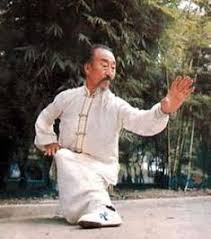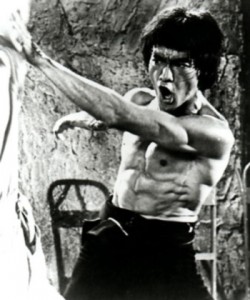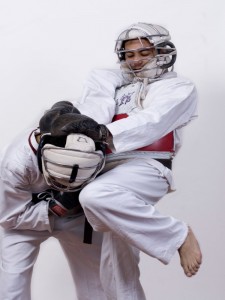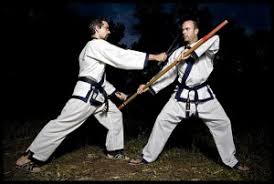Kudo
 Kudo is a Japanese sports style that was founded in 1981 by master Azuma Takashi. This type of martial arts includes techniques from a wide variety of martial arts, such as karate, boxing, judo, etc.
Kudo is a Japanese sports style that was founded in 1981 by master Azuma Takashi. This type of martial arts includes techniques from a wide variety of martial arts, such as karate, boxing, judo, etc.
According to the rules of the competition, fighters are allowed all the tricks of the fight, and besides blows with limbs, knees, elbows and the head in all parts of the body except the back, neck and groin. The use of painful and suffocating techniques is allowed.
After the formation of a new karate style, the Japanese media called it “furious.” The original name of the style sounded like “Daido Juku Karate-do.” The first name of the style contained Chinese wisdom, which states that there are no universal roads leading to the Great Way. Man must create them in his heart and go to them his own way.
In 1991, Takashi allowed Yuri Pirogov, a Russian athlete, to participate in the competition. So, kudo began to spread in Russia and around the world.
Kudo got its current name recently – in 2001. Kudo, according to the new design of Azuma, means “the path of emptiness.” In general, the concept of emptiness in the Japanese martial arts culture plays an important role. So, in the name “karate” – “kara” also means emptiness.
Kudo came from karate, but today it is a new, separate and fully formed sport. Kudo includes karate and other martial arts techniques, creating a real fighting style for life.
Kudo is synthesized from a combination of a wide variety of techniques. So, the hand technique in kudo is from boxing, the elbow, knee kicks are from Thai boxing, the pain and asphyxiation techniques are from judo and sambo, the kicks are taken from kekushinkai karate.
In addition to the development of technology, the founder of kudo also provided for the rules of battles that are closest to real battles, where almost everything is allowed. According to the moral criteria adopted in kudo, during the competition it is impossible to attack from behind, hit in the throat and joints and finish off the lying enemy.
Kudo is a rather tough sport, but strict adherence to the rules helps to avoid serious injuries. So, in kudo battles, a helmet with a transparent mask and thin gloves are used, which effectively help athletes avoid dangerous injuries, as well as fully use the technique of wrestlers in fights, because thin gloves on the hands allow you to apply the grip.
An important point for Kudo competitions is that fighters of various types of martial arts can participate in them if they have certain training, which is allowed by the rules for conducting fights. So, wrestlers in kudo can actively use painful and asphyxiating techniques, boxers can demonstrate excellent hand work, and a taekwondo fighter can demonstrate the technique of kicking. After all, all these techniques and many others embody the Kudo style.
It should be noted that Kudo does not use a commonly used system for dividing athletes into categories only by weight. In Kudo, categories are replaced by coefficients in which the combined indicators of the athlete’s weight and height are incorporated, which more objectively assesses the chances of athletes.
In developing the style, Takashi rejected everything unnecessary, divorced from life, that which is not applicable in real combat. Also, the founder of kudo removed from training training strikes from unusual positions and traditional stances. He left only one stance for the kudo — the combat stance in which the battle takes place.
Therefore, Kudo is a modern martial art that meets all the requirements of security, efficiency and accessibility.
Kudo is a Japanese sports style that was founded in 1981 by master Azuma Takashi. This type of martial arts includes techniques from a wide variety of martial arts, such as karate, boxing, judo, etc.
According to the rules of the competition, fighters are allowed all the tricks of the fight, and besides blows with limbs, knees, elbows and the head in all parts of the body except the back, neck and groin. The use of painful and suffocating techniques is allowed.
After the formation of a new karate style, the Japanese media called it “furious.” The original name of the style sounded like “Daido Juku Karate-do.” The first name of the style contained Chinese wisdom, which states that there are no universal roads leading to the Great Way. Man must create them in his heart and go to them his own way.



